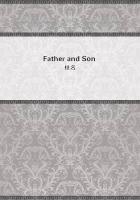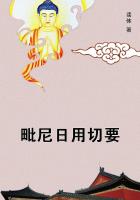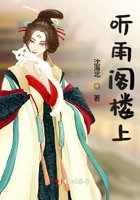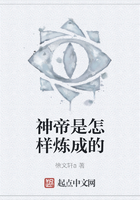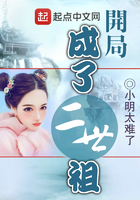The Vicissitudes of Slave LifeDEATH OF OLD MASTER'S SON RICHARD, SPEEDILY FOLLOWED BY THAT OFOLD MASTER--VALUATION AND DIVISION OF ALL THE PROPERTY, INCLUDINGTHE SLAVES--MY PRESENCE REQUIRED AT HILLSBOROUGH TO BE APPRAISEDAND ALLOTTED TO A NEW OWNER--MY SAD PROSPECTS AND GRIEF--PARTING--THE UTTER POWERLESSNESS OF THE SLAVES TO DECIDE THEIROWN DESTINY--A GENERAL DREAD OF MASTER ANDREW--HIS WICKEDNESS ANDCRUELTY--MISS LUCRETIA MY NEW OWNER--MY RETURN TO BALTIMORE--JOYUNDER THE ROOF OF MASTER HUGH--DEATH OF MRS. LUCRETIA--MY POOROLD GRANDMOTHER--HER SAD FATE--THE LONE COT IN THE WOODS--MASTERTHOMAS AULD'S SECOND MARRIAGE--AGAIN REMOVED FROM MASTER HUGH'S--REASONS FOR REGRETTING THE CHANGE--A PLAN OF ESCAPE ENTERTAINED.
I must now ask the reader to go with me a little back in point of time, in my humble story, and to notice another circumstance that entered into my slavery experience, and which, doubtless, has had a share in deepening my horror of slavery, and increasing my hostility toward those men and measures that practically uphold the slave system.
It has already been observed, that though I was, after my removal from Col. Lloyd's plantation, in _form_ the slave of Master Hugh, I was, in _fact_, and in _law_, the slave of my old master, Capt.
Anthony. Very well.
In a very short time after I went to Baltimore, my old master's youngest son, Richard, died; and, in three years and six months after his death, my old master himself died, leaving only his son, Andrew, and his daughter, Lucretia, to share his estate.
The <136>old man died while on a visit to his daughter, in Hillsborough, where Capt. Auld and Mrs. Lucretia now lived. The former, having given up the command of Col. Lloyd's sloop, was now keeping a store in that town.
Cut off, thus unexpectedly, Capt. Anthony died intestate; and his property must now be equally divided between his two children, Andrew and Lucretia.
The valuation and the division of slaves, among contending heirs, is an important incident in slave life. The character and tendencies of the heirs, are generally well understood among the slaves who are to be divided, and all have their aversions and preferences. But, neither their aversions nor their preferences avail them anything.
On the death of old master, I was immediately sent for, to be valued and divided with the other property. Personally, my concern was, mainly, about my possible removal from the home of Master Hugh, which, after that of my grandmother, was the most endeared to me. But, the whole thing, as a feature of slavery, shocked me. It furnished me anew insight into the unnatural power to which I was subjected. My detestation of slavery, already great, rose with this new conception of its enormity.
That was a sad day for me, a sad day for little Tommy, and a sad day for my dear Baltimore mistress and teacher, when I left for the Eastern Shore, to be valued and divided. We, all three, wept bitterly that day; for we might be parting, and we feared we were parting, forever. No one could tell among which pile of chattels I should be flung. Thus early, I got a foretaste of that painful uncertainty which slavery brings to the ordinary lot of mortals.
Sickness, adversity and death may interfere with the plans and purposes of all; but the slave has the added danger of changing homes, changing hands, and of having separations unknown to other men. Then, too, there was the intensified degradation of the spectacle. What an assemblage! Men and women, young and old, married and single; moral and intellectual beings, in open contempt of their humanity, level at a blow with <137 DIVISION OFOLD MASTER'S PROPERTY>horses, sheep, horned cattle and swine!
Horses and men--cattle and women--pigs and children--all holding the same rank in the scale of social existence; and all subjected to the same narrow inspection, to ascertain their value in gold and silver--the only standard of worth applied by slaveholders to slaves! How vividly, at that moment, did the brutalizing power of slavery flash before me! Personality swallowed up in the sordid idea of property! Manhood lost in chattelhood!
After the valuation, then came the division. This was an hour of high excitement and distressing anxiety. Our destiny was now to be _fixed for life_, and we had no more voice in the decision of the question, than the oxen and cows that stood chewing at the haymow. One word from the appraisers, against all preferences or prayers, was enough to sunder all the ties of friendship and affection, and even to separate husbands and wives, parents and children. We were all appalled before that power, which, to human seeming, could bless or blast us in a moment. Added to the dread of separation, most painful to the majority of the slaves, we all had a decided horror of the thought of falling into the hands of Master Andrew. He was distinguished for cruelty and intemperance.
Slaves generally dread to fall into the hands of drunken owners.
Master Andrew was almost a confirmed sot, and had already, by his reckless mismanagement and profligate dissipation, wasted a large portion of old master's property. To fall into his hands, was, therefore, considered merely as the first step toward being sold away to the far south. He would spend his fortune in a few years, and his farms and slaves would be sold, we thought, at public outcry; and we should be hurried away to the cotton fields, and rice swamps, of the sunny south. This was the cause of deep consternation.


